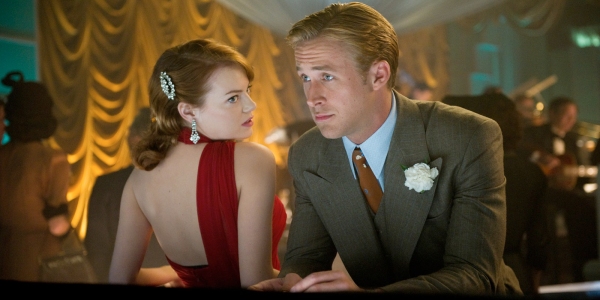Only God Forgives (2013)
August 5, 2013 Leave a comment
 US ex-pat Julian Thompson (Ryan Gosling) is smuggling drugs in and out of Bangkok from his boxing club when older brother Billy (Tom Burke) is killed by the father of the girl he raped and murdered. The act is overseen by Lieutenant Chang (Vithaya Pansringarm), known to the local police as the Angel of Vengeance, who then severs one of the father’s arms as penance for his parental neglect. When mother Crystal (Kristin Scott Thomas) arrives in town for her son’s funeral, she meets with Julian and other associates to arrange Chang’s assassination.
US ex-pat Julian Thompson (Ryan Gosling) is smuggling drugs in and out of Bangkok from his boxing club when older brother Billy (Tom Burke) is killed by the father of the girl he raped and murdered. The act is overseen by Lieutenant Chang (Vithaya Pansringarm), known to the local police as the Angel of Vengeance, who then severs one of the father’s arms as penance for his parental neglect. When mother Crystal (Kristin Scott Thomas) arrives in town for her son’s funeral, she meets with Julian and other associates to arrange Chang’s assassination.
Having previously collaborated on 2011’s Drive, a film which received almost blanket praise, Nicolas Winding Refn and Ryan Gosling reunite for another over-hyped serving of ultra-violent and hyper-stylised thrills. Dropping the 80s trappings that characterised their previous offering, the director instead outfits his latest film with traditional Thai iconography and garish monochrome in the hope of making a Western for the Far East, complete with its own near-silent cowboy hero.
Thankfully, while Drive (adapted from James Sallis’ 2005 novel of the same name) had little more to say than “Look at Ryan Gosling, he’s wearing a jacket”, from the very outset it is obvious that Only God Forgives is a far more interesting proposition. Gone are the unconvincing attempts at redemption and obviously afterthought love interests; the only thing that matters to Gosling’s character — who, it is encouraging to note, has a name this time and everything — is the unhealthy and unfulfilled relationship he has with his mother.
From the moment Scott Thomas appears onscreen sparks fly — she hits the film like a bolt of electricity and immediately lights up the room. Gosling can by now stare into the middle distance with his eyes closed (it’s a talent), but after a time you can’t help but question whether such effortlessness may in actual fact be a simple lack of effort. Scott-Thomson on the other hand is a pleasure to watch as she conducts Bangkok’s criminal underbelly from the comfort of her penthouse suite, a live wire in a blonde wig who stings her son with endless insults and attacks on his very manhood.
The violence feels part of the story this time around, rather than a stylistic decision. These aren’t glamourised or glorified acts of heroism but dark and disturbing episodes of sadism and revenge. One of the film’s stand out scenes features a bare-fisted boxing match between Thompson and Chang — their first confrontation — in which a black-suited Gosling is left beaten and bloodied while his mother watches passively from the sidelines. It’s a mesmerising moment, both beautiful and mercilessly brutal.
Regardless of how often Refn might change the colour filter on his camera, however, there is little disguising the fact that for most of Only God Forgives‘ running time very little is actually happening, and even less being said. These scenes are almost as excruciating as those responsible for the 18 rating, only for different reasons; on one occasion we watch from various angles as Julian walks silently down a corridor, a scene that is drawn out to truly ludicrous lengths, while the editing does its best to suggest that the events taking place on screen may not even really be happening.
Only God Forgives has polarised audiences, even leading those who enjoyed the under-plotted and barely scripted Drive to criticise the film’s apparently meandering aimlessness. Unlike their previous effort, however, this is a film that has something to say, and while it might often feel staged, plodding and self-indulgent there are moments of such artistry and Oedipal strangeness that you can’t help but admire it.











